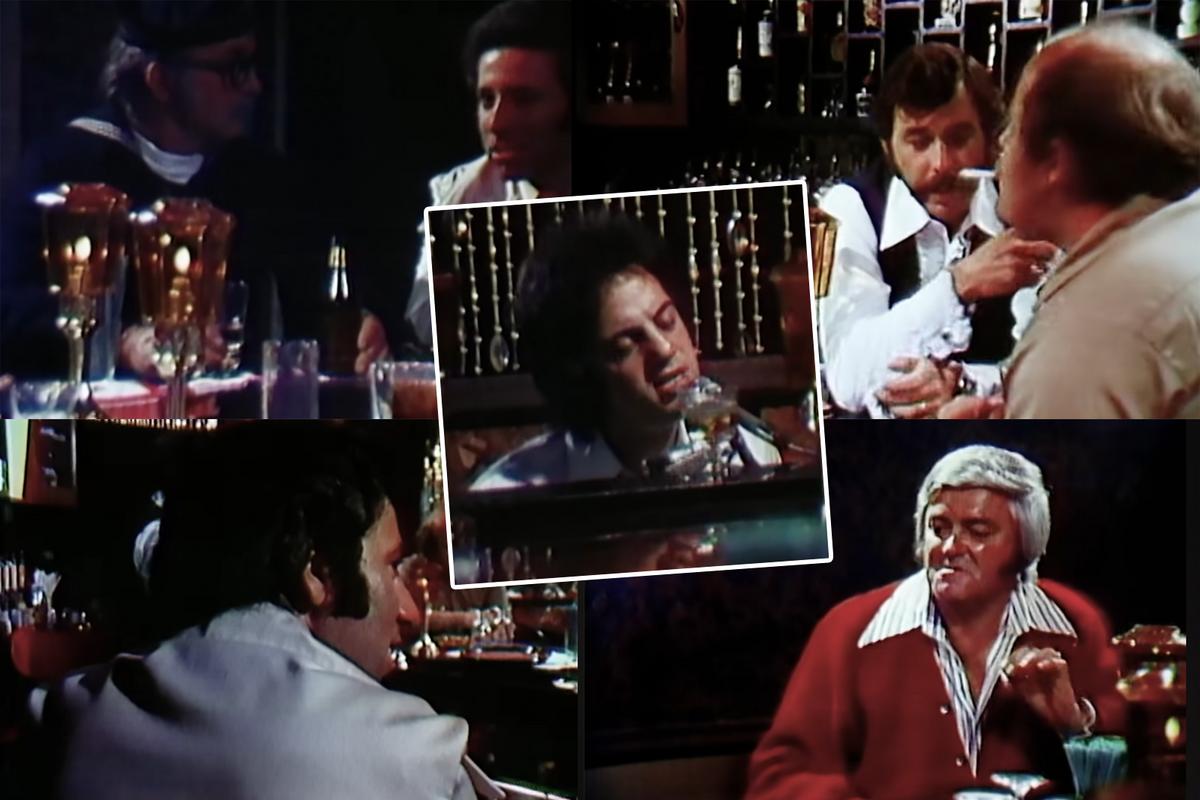Billy Joel Discusses "Piano Man" Fan Theory and Retirement
In a recent interview with NBC’s Today, Billy Joel addressed a long-standing fan theory surrounding his iconic song "Piano Man." The theory suggests that the song’s narrator is a naive straight man who is not sure what’s going on around him, and that the regulars in the room ask him, "Man, what are you doin’ here?" Joel responded to the idea, saying, "Oh, I see how that could be. Paul’s talking to Davy who’s in the navy; he doesn’t have time for a wife."
The Origins of the Theory
The theory centers on the lines about a conversation between a real estate salesman and a sailor. Joel explained that his original thinking behind Paul ("Now Paul is a real estate novelist / Who never had time for a wife") was that he was too busy trying to write the Great American Novel to find romance.
The Implications of the Theory
Joel made a gesture that suggested the implications made sense, saying of the new idea, "It’s a whole theory – it’s very funny, actually!" He also mentioned that he had always been open to interpretations of his songs, saying, "I’ve never been one of those artists who says, ‘This is exactly what I meant.’"
The Song’s Origins and Evolution
Joel also discussed the origins and evolution of "Piano Man." He said that at the time the song was released in 1973, he was shocked that the record label wanted to put it out as a single. He felt that the song was a bit depressing and didn’t fit the typical mold of a hit single. However, the song did get a lot of airplay and has since become one of Joel’s most beloved and enduring songs.
The Significance of "Piano Man"
Joel also talked about the significance of "Piano Man" in his career. He said that the song has always been a highlight of his live shows, and that he enjoys watching the audience sing along to the lyrics. He joked, "I’ve watched people in the crowd. They know the lyrics so I’m following them! When the audience takes it over, I like that. I get to take a little break!"
Billy Joel’s Retirement
Joel also addressed the topic of retirement, saying that he has no plans to stop performing. He said, "It doesn’t mean I’ll never play there again," referring to his record-setting 10-year residency at Madison Square Garden. "It’s just the end of this run. I’m not gonna stop doing shows. That’s what I do."
What’s Next for Billy Joel
Joel also spoke about what’s next for him, saying that he plans to continue touring and performing. He mentioned that he has asked fellow musicians Bruce Springsteen and Don Henley about retirement, and they have both told him that they plan to keep performing. Joel said, "What else am I gonna do, stop doing shows, sit around and watch TV, [turn into] a vegetable? No, I don’t wanna do that."
Conclusion
In conclusion, Billy Joel’s "Piano Man" is a song that has been open to interpretation for decades. The latest theory surrounding the song’s meaning has sparked a lot of discussion and debate, and Joel has responded by saying that he can see how the idea could be interpreted that way. Despite the song’s age, it remains a beloved and enduring part of Joel’s live shows, and he shows no signs of slowing down anytime soon.
FAQs
Q: What is the latest theory surrounding the meaning of "Piano Man"?
A: The latest theory suggests that the narrator of the song is a naive straight man who is not sure what’s going on around him, and that the regulars in the room ask him, "Man, what are you doin’ here?"
Q: What does Billy Joel think about the theory?
A: Joel has said that he can see how the idea could be interpreted that way, and that he finds it "very funny."
Q: What is the origin of the song "Piano Man"?
A: Joel wrote the song in 1973, and it was released on his album of the same name.
Q: What is the significance of "Piano Man" in Billy Joel’s career?
A: The song has always been a highlight of Joel’s live shows, and it has become one of his most beloved and enduring songs.
Q: Does Billy Joel plan to retire?
A: No, Joel has said that he has no plans to stop performing. He plans to continue touring and performing, and has said that he enjoys watching the audience sing along to his songs.






